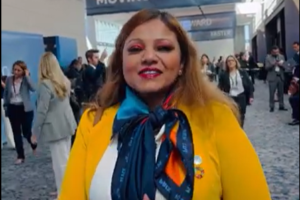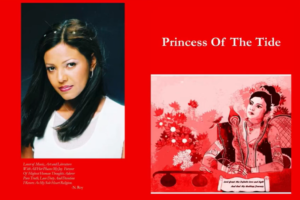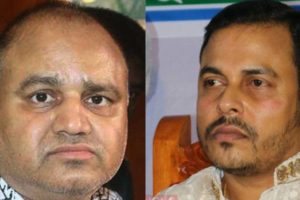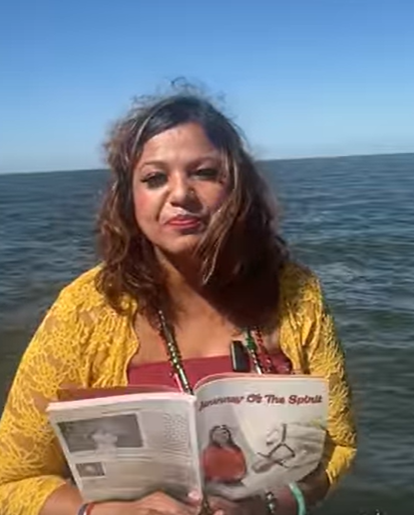President Hassan Rouhani of Iran never met President Donald Trump in New York this week. It was a near miss, according to European officials, who were desperately trying to avert a conflict by putting the two adversaries together in a room and hoping for the best.
But in the hours before he took off Thursday for Tehran, Rouhani, sounding pensive, did not dismiss the idea that, sometime and someplace, a meeting with an American president was entirely possible — under conditions set by the Iranians.
“If he removes these preconditions,’’ Rouhani told reporters at an hourlong news conference, referring to the increasingly painful sanctions the United States has reimposed on Iran, “then negotiations with the US are a possibility.”
Then he went further, agreeing that the 2015 Iran nuclear deal renounced by Trump had its imperfections — though he appraises its defects differently than Trump does — and adding that he was open to extending its terms. “We can go beyond the JCPOA,’’ he said, referring to the formal name of the agreement, the Joint Comprehensive Plan of Action, without specifying what he had in mind.
It was the culmination of an odd week at the annual United Nations General Assembly, one that had none of the fireworks many had predicted. Trump, perhaps fearful that the Sept. 14 attack on Saudi oil facilities had placed the two countries on a path to conflict, perhaps distracted by the impeachment movement gathering steam in Washington, sounded strangely conciliatory toward Iran.
He did not call the Saudi attack an “act of war,’’ as his secretary of state, Mike Pompeo, had done. He did not try to organize a military response by allies. He kept saying the Iranians wanted “a deal,’’ without explaining what kind of deal he envisioned. In his speech to the General Assembly, Trump noted how the United States had befriended former enemies, a reference to Germany, Japan and Vietnam.
For his part, Rouhani, given several opportunities at both public and private events to comment on the prospect that Trump was in deep political trouble at home, decided to hold his tongue. Iran, he said with a smile, would deal with whatever president America sent to him. (One of Rouhani’s aides, however, sought out a reporter at a reception to ask whether Trump would survive the year in office.)
All week as Iranian officials and diplomats met their counterparts at the United Nations, the talk was centered on the details of how — not if — a meeting between Iran and the United States could be brokered. Yet both Trump and Rouhani seemed, independently, to conclude that meeting in New York was just too risky.
But both faced temptations. Trump, according to one Republican who spoke to him, saw a meeting as an opportunity to defuse pressure to retaliate for the attack on Saudi Arabia — and perhaps to commandeer headlines dominated by his possible impeachment.
And Rouhani found that European leaders, led by President Emmanuel Macron of France, were twisting his arm to meet Trump. In fact, an impromptu lobbying campaign was captured in a video, published Thursday, from a diplomatic reception.
Rouhani, in his black clerical robe and white turban, stood in the hallways of the United Nations on the sidelines of the General Assembly. He was in a semicircle with Macron and Prime Minister Boris Johnson of Britain. Cameras were clicking all around, as a translator relayed the European leaders’ comments to Rouhani.
“If you leave the country without meeting with Mr. Trump, honestly this is a lost opportunity,” Macron said. “President Trump will not go to Tehran.”
Rouhani let out a hearty laugh.
Then Johnson picked up where Macron left off. Growing animated, raising both hands, he said: “You need to be on the side of the swimming pool and jump at the same time.”
“I agree,” Macron said.
Rouhani appeared amused, leaning in to listen with a big grin, then laughing even harder.
The two Europeans were not alone: Prime Minister Shinzo Abe of Japan and President Imran Khan of Pakistan also lobbied to bring the leaders of the United States and Iran face to face — something that didn’t happen even after the 2015 agreement had been negotiated.
For Iran, however, the mere act of a handshake with an American president is fraught with risk. Since its inception, the Islamic Republic has made rejecting the United States a subject of street performance, from the chants of “Death to America” at Friday prayers to the branding of the country as the “Great Satan.”
So it came as a surprise that Rouhani imagined meeting Trump as the logical endpoint of negotiations — assuming the conditions are right. In an apparent reference to Trump’s meetings with Kim Jong Un, the North Korean leader, Rouhani said in his General Assembly address: “For us, a photo opportunity is not the first step but the last step.”
The problem is that America’s first steps and Iran’s remain wildly out of sync. Rouhani repeated Thursday that he would not negotiate until the United States lifts the crushing sanctions that have depleted Iran’s oil revenue, plunged it into recession and designated its central bank and Iran’s Revolutionary Guard as terrorist organizations.
Pompeo and Trump have said they would meet Iran without preconditions — at least until Trump declared, two weeks ago, such statements were “fake news” made up by the media. In fact, there is a struggle within the administration about whether to engage the Iranians — a struggle that led to the dismissal just a few weeks ago of John Bolton, the hard-line national security adviser. He was replaced with a diplomat who has no known views on how to deal with Iran.
While the two presidents were in New York, international inspectors visited Iran’s main nuclear site, at Natanz, and confirmed that the country was now installing advanced centrifuges, which enrich uranium, years ahead of the schedule allowed in the 2015 agreement. It is part of an effort by Iran to stop complying bit by bit, to match Trump’s abandonment of the entire accord.
“They decreased their commitments, so we decreased our commitments,” Rouhani said. “More pressure only distances us further from negotiations.”
But Rouhani told reporters that Iran’s decision to phase out its commitments under the nuclear accord was reversible.
His message was delivered softly, with no harangues. And that may cause him trouble back home. The images of Rouhani sharing laughs with leaders of France and Britain have infuriated the hard-line faction in Iran: In conservative newspapers and on some social media posts, critics berated him for seeming so chummy with Macron and Johnson, just a day after those leaders issued a statement, along with Germany’s chancellor, Angela Merkel, blaming Iran for the attacks on Saudi Arabia.
“What is the reason for Rouhani’s untimely laughter? He just wants to say he has a relationship with the world,” tweeted one conservative, Aliakbar Raefipour.
Kayhan, the mouthpiece newspaper for Supreme Leader Ayatollah Ali Khamenei, also wrote Thursday that Rouhani’s speech was strong but that his friendly demeanor with Western leaders was out of line.
But Rouhani seemed undeterred. While he did not meet Trump, he held what appeared to be his first conversation with Merkel, who had refused to meet her Iranian counterpart during past United Nations gatherings.
And she used the moment to reject the idea of lifting sanctions first.
“I would welcome it if it came to talks between the United States and Iran, but it won’t work that all the sanctions are first taken off the table and then there are talks,” Merkel said after the meeting Tuesday. “I think that is not realistic.”






















